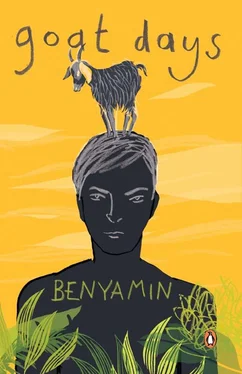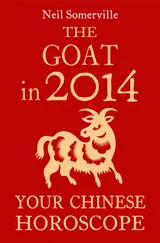He came to me with an aluminium bowl full of milk. After he poured out some milk from it he gave it to me and told me something in Hindi. It was hot like it had been on a stove. I wondered if a goat’s udder was so warm. Thinking that he was asking me to drink the hot milk, I gulped it down. I felt the pinch of hunger from the previous day and emptied it completely. The scary figure pulled my ears and mumbled something. Tried to ask me something. Tried to sound angry. When his words shattered against the barrier of language, helplessly he gave me another bowl of milk and gesturing with his hands he told me to give it to the arbab.
I went into the tent of the arbab with that vessel of milk. Lying on a cot, he was not much different from the scary figure: dirty, wearing stinking clothes. No sign of the benefit of taking baths. He woke up and yawned. Then, taking the bowl from me, he finished it in one go. The vessel must have contained at least five litres of milk!
Handing back the bowl, the arbab asked me something. As usual, I didn’t understand a thing. He tried his best to communicate in Arabic. Not even a word of it entered my head. Furiously, he stamped his feet on the ground. All of a sudden, all the grief I had been restraining gushed forth as tears. I howled loudly in front of the arbab. Maybe it was the overflow of the sorrow, anger and hunger that filled me. I was wailing ‘I have to go’, ‘I cannot be here’, ‘I did not come for this work’. Although I knew that the arbab didn’t understand a thing, I felt that it was my duty to say what I had to say. I hoped that he would take pity on me, seeing me cry. Instead, he irately pushed me out of the tent. Weeping, I went and sat on the scary figure’s cot. The scary figure was busy with some work. I did not care. My eyes and mind were filled with tears.
Whenever he came out and went back among the herds of goats, the scary figure kept telling me something, while continuing to work. I could make out that he was trying to explain the situation to me. Maybe he was consoling me, sympathizing with me. But I was astounded by the absolute indifference that seemed to have permeated his voice and his facial expressions.
The day became brighter. Even the morning sun was quite harsh. The scary figure opened the gate of the fence, let the goats loose and followed them. I was left alone.
Then, my own arbab, who had dropped me here the previous night, came in a pick-up. It was similar to the previous day’s vehicle, but better looking, a big vehicle that would fit a joint family. It was only then I noticed that the previous day’s vehicle was parked at some distance. Last night, the arbab must have returned in his own vehicle.
I was somewhat relieved when I saw my own arbab. I ran towards him. There were no traces of the previous day’s anger on his face. But, without acknowledging me, he took out something from the boot and walked towards the tent. Like a dog wagging its tail, I followed him. The two arbabs embraced and greeted each other for almost five minutes after which they began to talk. While doing so, they glanced at me from time to time. I guessed that their conversation was about me. Finally, the arbab who had spent the night in the tent gathered some things, put them in the boot of the car and left, after a final salaam.
I was still waiting outside the tent, crying. My own arbab came towards me, patted my back and said something to console me. Although it did not console me, it mitigated my wailing. He went back into the tent, opened a packet and gave me something that looked like a chapatti. ‘Khubus,’ I heard him saying clearly. This, then, is khubus. I had heard this word in the riverside bragging of many Gulf-returnees. Khubus.
The arbab signalled to me that I should eat. I had not even brushed my teeth in the morning, nor followed any of my morning rituals. I hadn’t taken a bath. Had it been at home, I wouldn’t even drink coffee without first ducking into the river — even when it rained. But that day, for the first time, I violated all my hygiene rules. I had drunk milk without brushing my teeth. Hunger for one and a half days forced me to ignore my habits. I sat outside the tent and greedily ate the new dish called khubus, even though I had nothing to dip it in or to smear it with. I didn’t feel the need for it either. It had the warmth and sweetness of freshly baked bread. Every time I took a bite, my mind kept repeating ‘Khubus! Khubus!’ After devouring four, the name engraved itself in my mind and in my stomach — khubus.
When I had finished, the arbab brought me a glass of water. I guzzled it down. Then he offered me another khubus. I declined. My stomach was full and I was fully satisfied. I was touched by the arbab’s affection.
By then, the scary figure had returned with the goats. He drove them inside the fence. Then he came and sat in front of the tent. The arbab gave him five or six pieces of khubus. Dipping them in water, he gulped them down, drank a jug of water, and went away without saying a word. I had observed the scary figure’s face as he sat eating. I saw a life hardened by sorrow and pain. He continued with his work, ceaselessly, without a moment’s rest.
The arbab went inside and brought me a thobe— the dress of the typical Saudi Arab man, a long, white, shirt-like garment, loose fitting, long sleeved and extending to the ankle, usually made out of cotton — and a pair of boots. I unfolded the thobe and almost vomited from its musty reek. It was unspeakably dirty. The arbab touched my pants and shirt and said, ‘ Sheelaadi … sheelaadi. ’ When he repeated it many times, I understood that he was asking me to remove my clothes. I undressed and reluctantly wore that stinking garment. I removed the brand new leather shoes I had brought from home and stepped into the stinking boots. It was my initiation to the stench, the first step to becoming another scary figure. Although I could foresee my dark future, I obeyed the directions of the arbab, so grateful was I for the khubus he had given me a while ago.
Pointing at the scary figure, the arbab said something in Arabic. I could only catch the word masara . Guessing that masara meant water, I dutifully took a pail and followed the scary figure. I filled the bucket with water from the tank, went inside, walked through the goats, and poured it out into a large container there. It was a cement tub, about three metres long, a metre wide and a quarter metre in height.
There were about twenty to twenty-five sections within the fenced area housing about fifty to a hundred goats each. In every section there were tubs for water, raw wheat, grass and hay. The goats could eat and drink whenever they wanted.
When the tub in the first section was filled, the scary figure opened the gate of the second section and released the goats. Leaping and bounding, they surged out. As he followed them, the scary figure pointed at a tub and said something in Hindi or in Arabic. The only word I could make out was mayin .
Mayin? I wondered what it was. Water or bucket? If it was water, then what was the masara that the arbab had mentioned? Who knew? Whatever it was, my job was to fill those tubs with water. So I did just that. Before he came back with the goats, I had filled the tub in that section.
Similarly, I filled water in the third and fourth sections. It was not easy. My back began to ache from carrying the bucket filled with water. Besides, as the noon sun blazed, the heat became oppressive and I grew thirsty.
When he was about to take the goats out from the next section, the arbab came out of the tent and told the scary figure something in Arabic. He concurred, nodding his head. Then the arbab came over and handed me a long stick. I received it with both my hands. It felt as though I was going through my initiation ceremony as a shepherd.
Читать дальше




![Джон Харгрейв - Mind Hacking [How to Change Your Mind for Good in 21 Days]](/books/404192/dzhon-hargrejv-mind-hacking-how-to-change-your-min-thumb.webp)







